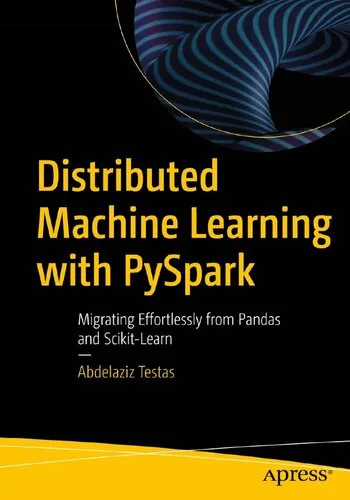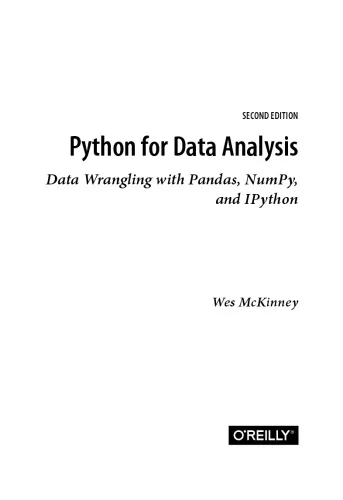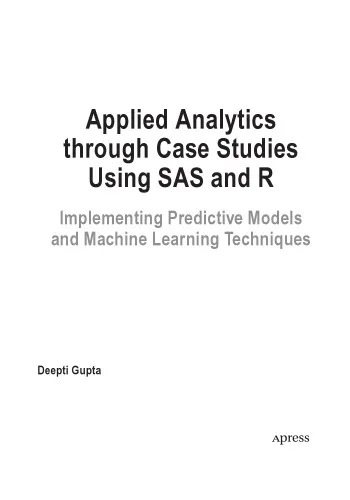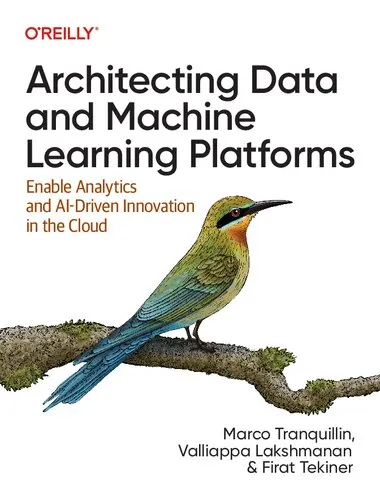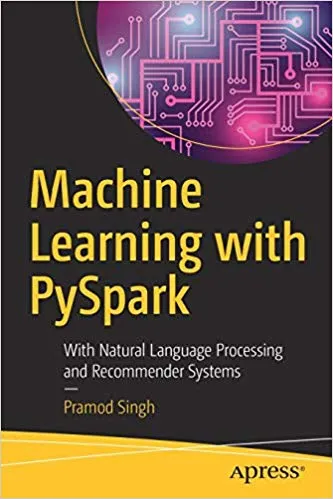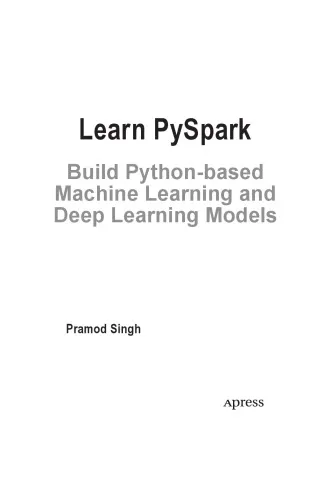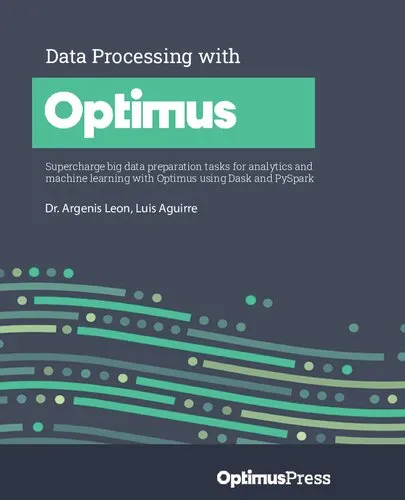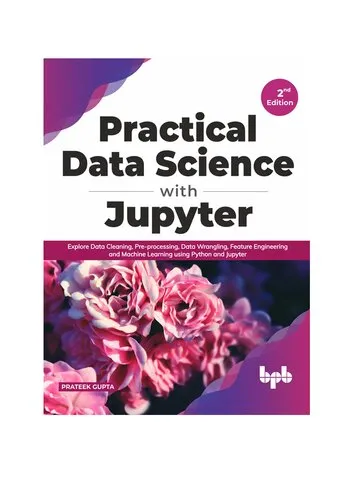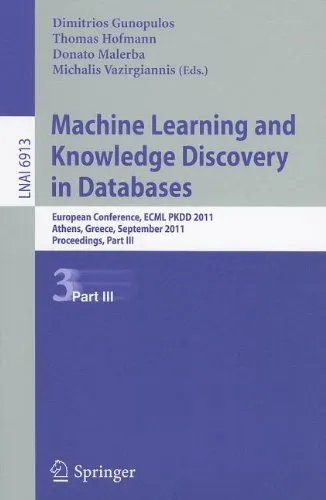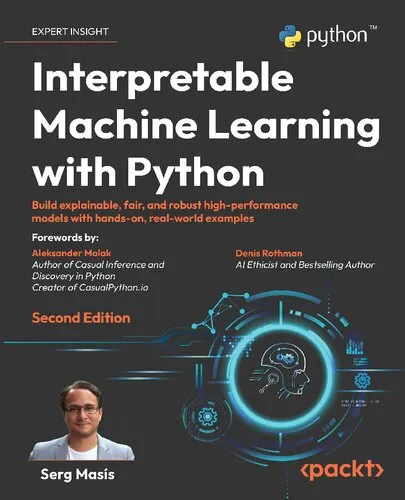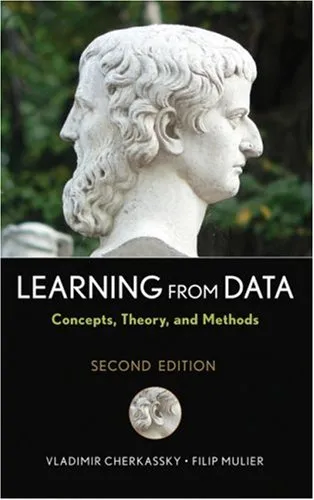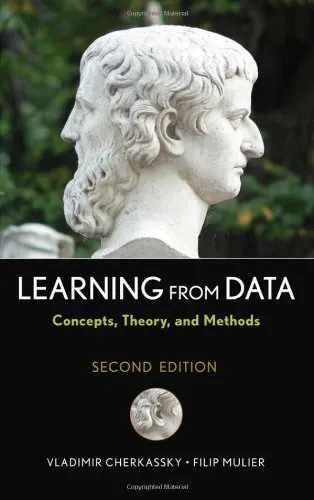Distributed Machine Learning with PySpark: Migrating Effortlessly from Pandas and Scikit-Learn
4.5
Reviews from our users

You Can Ask your questions from this book's AI after Login
Each download or ask from book AI costs 2 points. To earn more free points, please visit the Points Guide Page and complete some valuable actions.Related Refrences:
Introduction to "Distributed Machine Learning with PySpark: Migrating Effortlessly from Pandas and Scikit-Learn"
Data science and machine learning have rapidly become cornerstones of technological advancements. However, as datasets scale and computational demands grow, traditional tools like Pandas and Scikit-Learn often reach their limitations. Enter PySpark—a distributed computing framework that addresses large-scale challenges seamlessly. This book, "Distributed Machine Learning with PySpark," bridges the gap for data scientists, providing a roadmap to migrate from familiar workflows in Pandas and Scikit-Learn to the powerful distributed capabilities of PySpark.
Written with clarity and a practical focus, this book ensures that professionals and enthusiasts alike can overcome the hurdles of transitioning to distributed machine learning. Packed with examples, real-world scenarios, and step-by-step instructions, this comprehensive guide helps readers unlock the full power of PySpark for their data science initiatives. By the end of this book, you’ll not only master PySpark but also gain insights into how distributed workflows can transform machine learning pipelines for big data.
Detailed Summary of the Book
The book begins by establishing a solid understanding of the limitations of traditional tools like Pandas and Scikit-Learn when dealing with massive datasets. From there, it introduces PySpark, focusing on its functionality as a distributed framework for handling computationally expensive tasks.
Readers will first learn how to set up their PySpark environment and explore its fundamental components, such as Resilient Distributed Datasets (RDDs) and DataFrames. The book compares these data structures to Pandas DataFrames, helping users understand similarities and differences. A crucial part of this section is the practical guidance on converting legacy Pandas workflows into PySpark pipelines.
Building on this foundation, the book delves into distributed machine learning using the MLlib library. Readers will explore classification, regression, clustering, and dimensionality reduction techniques, mirroring workflows commonly performed in Scikit-Learn but optimized for distributed computation. Each topic is supported by hands-on examples to ensure practical application of the concepts.
In subsequent chapters, the book focuses on optimization strategies, debugging PySpark workflows, and integrating PySpark with popular tools like Jupyter Notebooks and cloud services. Special attention is given to streamlining workflows for both local development and deployment in large-scale production environments.
Finally, the book touches on advanced topics such as distributed deep learning and combining PySpark with libraries for deep learning frameworks. Each chapter builds incrementally, preparing readers to tackle increasingly complex scenarios.
Key Takeaways
- Understand the limitations of Pandas and Scikit-Learn for large-scale datasets.
- Learn the core concepts of distributed computing and how they apply to machine learning pipelines.
- Effortlessly transition from Pandas workflows to PySpark DataFrames.
- Implement distributed machine learning models using PySpark's MLlib.
- Streamline data workflows from local environments to production-scale systems.
- Gain proficiency in debugging, performance optimization, and deployment of PySpark applications.
Famous Quotes from the Book
"Data science isn't just about ‘what’ you analyze—it's about ‘how’ you scale the analysis."
"Transitioning to distributed systems doesn't mean discarding your previous knowledge—it means building upon it with tools designed for scale."
"In the age of big data, knowing how to break a problem into smaller, distributed parts is more valuable than solving it on a single machine."
Why This Book Matters
Today, data is being generated at an unprecedented scale, and leveraging its full potential requires tools that can handle the magnitude and complexity of such data. While Pandas and Scikit-Learn remain benchmarks for small to medium-scale projects, their limitations can hinder workflows involving terabytes or even petabytes of data. To remain relevant and impactful, data scientists must adopt distributed systems seamlessly and quickly without losing productivity.
"Distributed Machine Learning with PySpark" empowers readers to overcome the initial hurdles of adopting PySpark. By directly addressing common pain points and demonstrating actionable steps for migration, this book is more than a guide—it's an enabler for individuals and teams aiming to unlock new possibilities in their data science endeavors. You'll find insights that not only enhance technical mastery but also improve overall system performance and scalability.
If you’re looking to stay ahead in the competitive data science landscape, this book is your gateway to mastering distributed machine learning while leveraging your existing expertise in Python-based tools.
Embark on this journey with confidence, and let "Distributed Machine Learning with PySpark" be your companion in mastering data at scale.
Free Direct Download
You Can Download this book after Login
Accessing books through legal platforms and public libraries not only supports the rights of authors and publishers but also contributes to the sustainability of reading culture. Before downloading, please take a moment to consider these options.
Find this book on other platforms:
WorldCat helps you find books in libraries worldwide.
See ratings, reviews, and discussions on Goodreads.
Find and buy rare or used books on AbeBooks.
1372
بازدید4.5
امتیاز0
نظر98%
رضایتReviews:
4.5
Based on 0 users review
Questions & Answers
Ask questions about this book or help others by answering
No questions yet. Be the first to ask!
